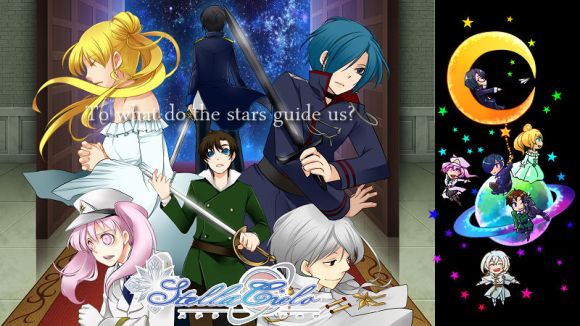
Not so long ago, making a video game was strictly for big businesses. Putting out a quality product required expensive workstations, plenty of office space to house the development team, and huge distribution and advertising budgets.
But at the same time as the cost of producing blockbuster interactive entertainment continues to skyrocket, a growing number of independent game creators are showing that with some reasonably priced development and project management software, a talented team can put together gaming experiences that rival anything from corporate-backed studios in terms of emotional impact.
We sat down for a chat with a young woman with the dream and drive to do just that, indie game director and composer Yumi Hashimoto.
Hashimoto’s latest endeavor is the Windows title Stella Cielo. The game is classified in Japan as a “visual novel,” something not unlike a Choose Your Own Adventure novel.
The player assumes the role of main character Loren, a young man living in a sleepy 19th century city. One day, Loren is summoned to become the savior of another planet which is facing annihilation due to its lack of a sun. Deepening on the choices the payer makes, Loren’s tale will unfold, and end, in different ways.
▼ Stella Cielo’s protagonist, Laurant (Loren to his friends)
Hashimoto, the game’s director and composer, recently met us for an interview in her native city of Yokohama to discuss working in the Japanese indie game scene, along with Stella Cielo’s development and upcoming English-language release.
RN24: Prior to creating Stella Cielo, you provided background music for a number of independently produced games. How did you get started as a musician?
Hashimoto: My parents have always been interested in classical music, so I had a lot of exposure to it through them. They signed me up for piano lessons when I was in elementary school, and I also took classical guitar lessons. I even entered a couple of competitions. I wasn’t good enough to win any, though, haha.
Then, when I was in junior high school, I found an indie singer online named Akiko Shihata. I was really impressed with her work, and when I found out she was producing her own CDs, I thought maybe I could do that too.
▼ Hashimoto poses with a copy of her latest title
So why did you decide to go into composing, instead of performing?
Well, I really enjoy creating music, thinking up the melodies, more than actually playing it. Even when I was a little girl and I watched Disney movies, I was always paying attention to the soundtracks. I’m a huge fan of Hans Zimmer, and the way he uses drums for such a Germanic feel. I really love his work in The Lion King, especially whenever Scar is on screen. In general, I liked the Disney films with energetic heroes, like Hercules, more than the ones with cute princesses, like The Little Mermaid.
Also, even though my parents aren’t hard-core gamers or anything, I remember them playing Donkey Kong Country 2 on the Super Famicom (Super NES) when I was a kid, and I really enjoyed the music in that, too.
So how did you first find jobs composing?
In junior high, I started researching how to create music using computer software, and in the process I came across two websites that allow users to submit their creations. The first is called Muzic, and in high school I started uploading to another called Text Ongaku Sakura. Through them, I heard about indie games in production that were looking for composers, so I started sending in applications.
I got my first job, writing five pieces of music for a school-life game, before I started high school. About two years after that, I’d built up enough recognition that I started getting offers sent to me directly, too.
▼ Background artwork from Stella Cielo
And your parents were OK with you doing that kind of work while you were so young?
Haha they said as long as my grades didn’t slip, I could do what I wanted.
And how did they feel about your decision to go into video game soundtracks instead of classical music?
They were really supportive. Actually, they told me that if my goal was to get my name in history books, that I should pursue classical music, but that if I wanted to leave an impression in people’s hearts, soundtracks were the better choice.
I still didn’t have the technical skills to create a game, though, so after graduating from high school, I spent two years working as a debugger and member of the music planning team at one of the biggest game companies in Japan. Sorry I can’t say which one. Japanese game companies are pretty secretive like that.
What are the differences between working for an established company versus producing a game independently?
When you’re working for a big company there’s definitely a sense of satisfaction that come from being part of a project with such a big scale. At the same time though, there’s always an atmosphere that you should hold back some story ideas, in order to make sequels if the game is a hit.
But when you’re producing an indie game, you have a lot more freedom in how you go about realizing your creative vision. You can go all out in the narrative, and tell the story from beginning to end.
How long did the development for Stella Cielo take?
From start to finish for the Japanese version, it took about five years. I came up with the idea for the story and the opening theme in high school. Even now, I don’t have the programming skills to create an entire game by myself, so I had to recruit members for the team through sites like the artwork-sharing site Pixiv.
▼ Stella Cielo’s opening theme and animation
Also, a lot of people in the indie game community have to work a second job to pay the bills, so that can slow the process down, too. I feel really lucky to have been able to find people who would stick with the project for so long.
How many people ended up working on the game?
We had nine core members, and the total team is around 20 people.
What was the most difficult part of the development process?
For me, personally, it was debugging. Making sure that the images, sound, and text all matched up properly took forever.
You mentioned you first came up with the game’s basic story in high school. What was your inspiration for it?
Well, like a lot of people, I went through a stage when I was a teenager where my parents and I argued a lot. It made me start thinking about what the ideal family is, and what a happy ending is for people who go through those sorts of things growing up.
I thought it would be interesting to explore those questions in a fantasy setting. Without giving too much away, Stella Cielo’s story deals with things like the relationship between children and parents, and the complications in being a parental figure for someone who’s not your biological child.
The main character, Loren, is kind of unique for this type of game. Usually in visual novels, the main character is supposed to be a blank slate for the player to project on, often with bangs obscuring their face. In contrast, Loren seems to have a pretty defined personality and appearance.
Yes, and that’s intentional. In a lot of visual novels, the protagonist is kind of a throw-away character. Even in Japan, a lot of gamers are tired of this, and I wanted to do something different by making the central character of the story someone with his own perspective.
Also, Loren is supposed to be the hero of the story. His mission is to save a world, which isn’t something you can ask a completely ordinary person to do. In order to be up to that task, he had to have a personality of his own.
A lot of the most popular visual novels in Japan, and the majority of those that have attracted attention in the West, feature some pretty explicit sexual content. Is there anything like that in Stella Cielo?
Not at all. From the start, I wanted to make a game that expands the range of who can enjoy a visual novel. We set out to make likeable characters who would make people, young or old, male or female, want to see what happens to them.
Which of the characters did you enjoy writing the most?
It would have to be Minna, the girl from another planet who comes looking for Loren to save her home world. Her personality has a lot of similarities to how I was in high school. Haha, I didn’t look nearly as cute as her, though.
In total, how many pieces of music did you compose for the game?
I ended up with around 30. Honestly, I would have liked to make 50, but there just wasn’t enough time. The easier ones I could finish in a couple of hours, but the more difficult ones often took me three days or so. The music for the battle scenes was especially tough, since the artwork is all still drawings and so much of the kinetic energy has to come from what the player hears.
When do you do most of your composing?
As much as I want to become a morning person, I just can’t seem to do it. In general, I start working on music around 10 p.m., and on really busy days, I don’t finish until around 5 in the morning.
▼ Hashimoto’s workspace
How do you keep yourself going all night long?
When I get tired, I take a break and listen to someone else’s music for a while. My family’s cats, Nikki and Momo, keep me company a lot, too.
What made you decide to produce an English version of Stella Cielo?
I often go to events like Comiket to sell games and soundtracks, and recently I’ve noticed more and more people from overseas attending. I’m really impressed by that passion they show as fans for independently-produced games. Not all of them can speak Japanese though, so I’d like to be able to give them something they can play and fully enjoy.
So now the big question, when is the English version going to be available?
The trial version is going on sale at Comiket, this month on December 31. The pricing isn’t finalized, but it probably won’t be more than 500 yen (US$5). Our booth is 22B in the ね / “Ne” block, right near the entrance to the hall.
The complete version is still being translated, but we’re hoping to have it done by next summer, or December of 2014 at the latest.
Finally, do you have a message for gamers in the English-speaking world?
December 31 also happens to be my birthday, so it’d be a great birthday present if I got a chance to talk with indie game fans from overseas.
For those of you who decide to buy the English version of Stella Cielo, thank you so much, and I hope you enjoy it, not just as a Japanese game, but as a memorable one.
RocketNews24 would like to thank Yumi Hashimoto and the Stella Cielo team for taking the time to talk with us.
Related: Stella Cielo English website
Stella Cielo Twitter
Comiket Enlgish Website
Images: Stella Cielo

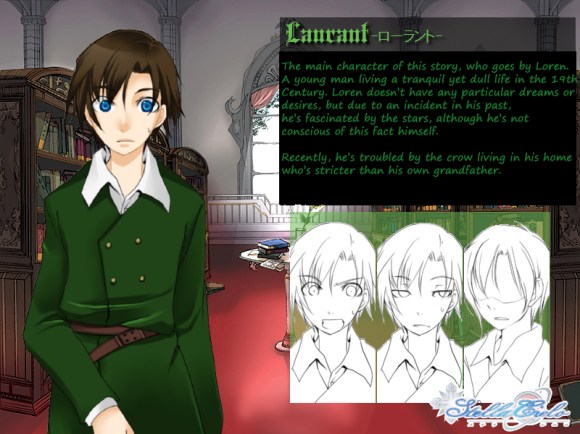
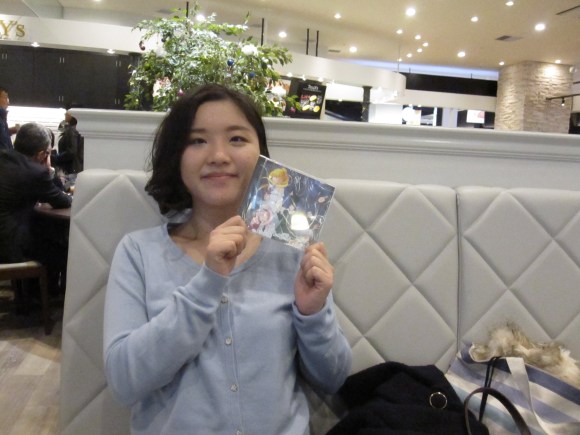
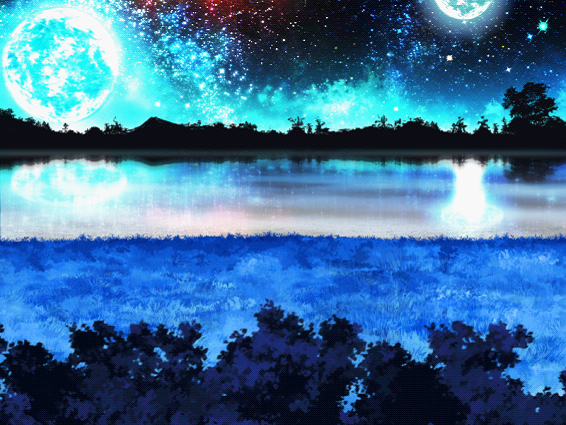
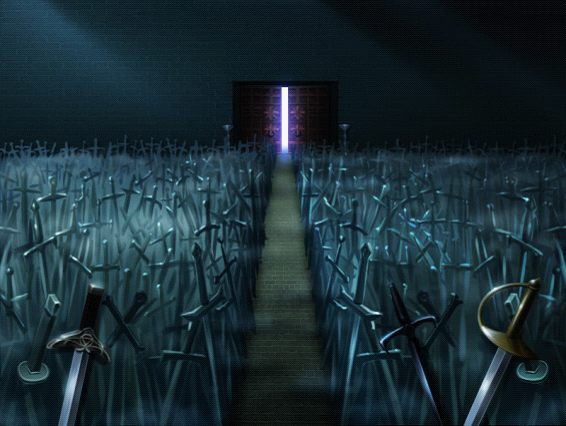
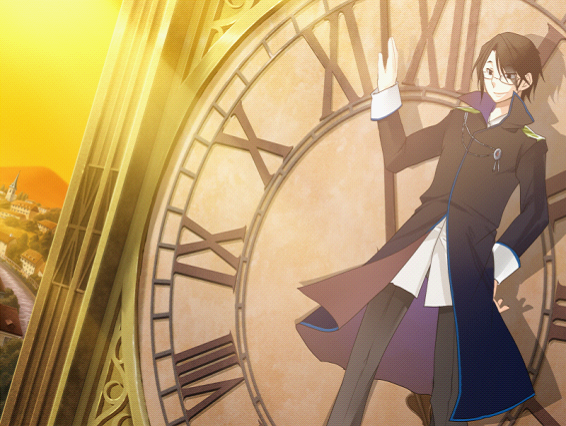
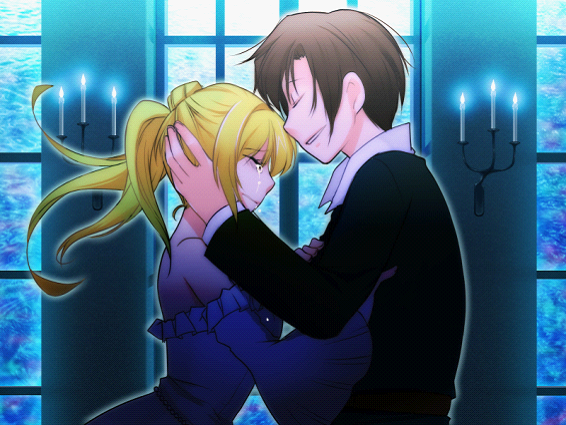
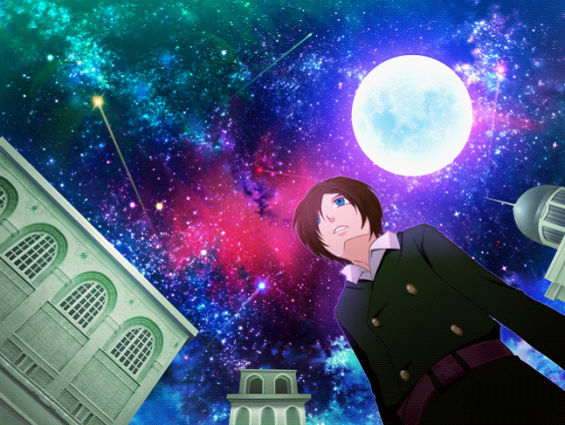
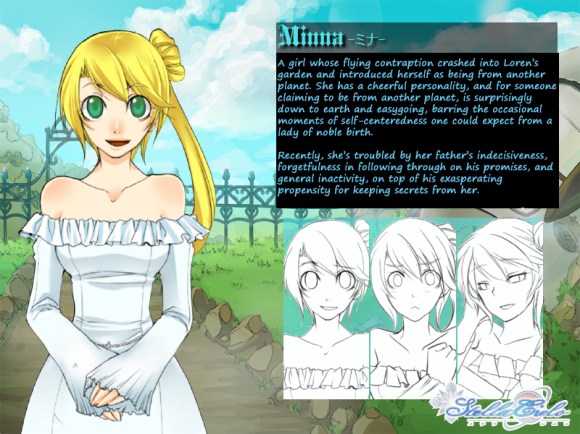
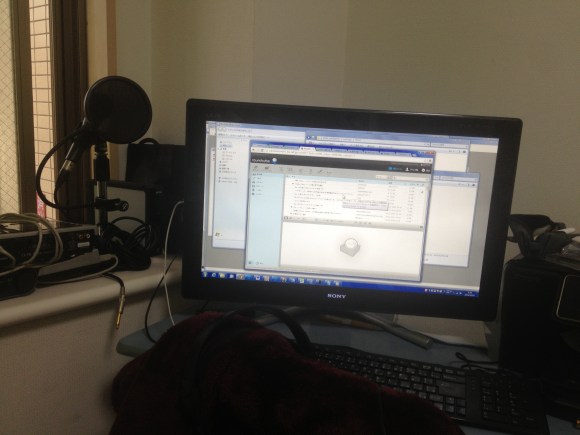
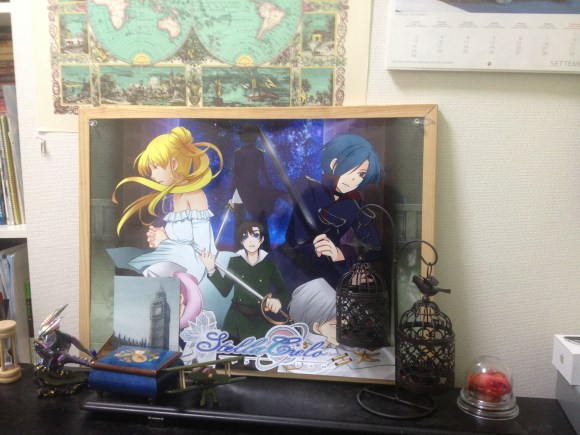
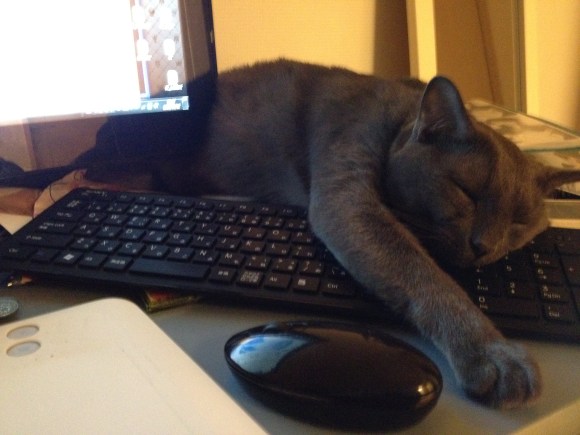
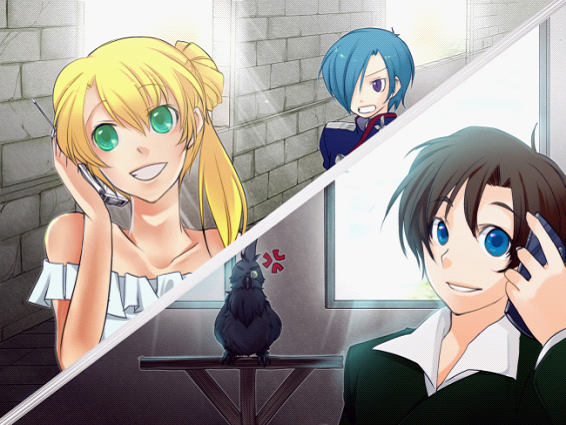
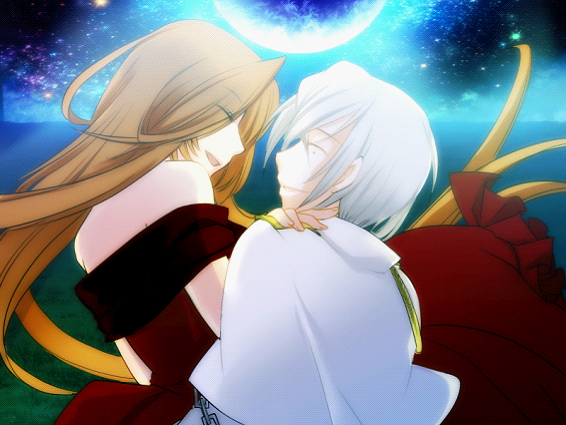
 Reminder: Japan has awesome all-you-can-eat cookies cafes
Reminder: Japan has awesome all-you-can-eat cookies cafes Japanese cookie maker temporary stops all-you-can-stuff bag deal due to lack of cookies
Japanese cookie maker temporary stops all-you-can-stuff bag deal due to lack of cookies Rakuten Travel reveals the top 5 best-rated, off-the-beaten-track Japanese ryokan inns
Rakuten Travel reveals the top 5 best-rated, off-the-beaten-track Japanese ryokan inns Angry Birds app gets first manga in Nakayoshi Shōjo magazine
Angry Birds app gets first manga in Nakayoshi Shōjo magazine Poll shows most disabled people in Japan dislike “inspirational” documentaries about disability
Poll shows most disabled people in Japan dislike “inspirational” documentaries about disability McDonald’s new Happy Meals offer up cute and practical Sanrio lifestyle goods
McDonald’s new Happy Meals offer up cute and practical Sanrio lifestyle goods All-you-can-drink Starbucks and amazing views part of Tokyo’s new 170 meter-high sky lounge
All-you-can-drink Starbucks and amazing views part of Tokyo’s new 170 meter-high sky lounge More foreign tourists than ever before in history visited Japan last month
More foreign tourists than ever before in history visited Japan last month Starbucks reopens at Shibuya Scramble Crossing with new look and design concept
Starbucks reopens at Shibuya Scramble Crossing with new look and design concept Hamster abandoned at Tokyo ramen restaurant gets new home
Hamster abandoned at Tokyo ramen restaurant gets new home Studio Ghibli glasses cases let anime characters keep an eye on your spectacles
Studio Ghibli glasses cases let anime characters keep an eye on your spectacles The oldest tunnel in Japan is believed to be haunted, and strange things happen when we go there
The oldest tunnel in Japan is believed to be haunted, and strange things happen when we go there Arrest proves a common Japanese saying about apologies and police
Arrest proves a common Japanese saying about apologies and police First-ever live-action Pokémon-themed TV drama on the way with former idol singer starring
First-ever live-action Pokémon-themed TV drama on the way with former idol singer starring Is the new Shinkansen Train Desk ticket worth it?
Is the new Shinkansen Train Desk ticket worth it? Disney princesses get official manga makeovers for Manga Princess Cafe opening in Tokyo
Disney princesses get official manga makeovers for Manga Princess Cafe opening in Tokyo We try out “Chan Ramen”, an underground type of ramen popular in the ramen community
We try out “Chan Ramen”, an underground type of ramen popular in the ramen community Beautiful new Final Fantasy T-shirt collection on the way from Uniqlo【Photos】
Beautiful new Final Fantasy T-shirt collection on the way from Uniqlo【Photos】 Foreign English teachers in Japan pick their favorite Japanese-language phrases【Survey】
Foreign English teachers in Japan pick their favorite Japanese-language phrases【Survey】 There’s a park inside Japan where you can also see Japan inside the park
There’s a park inside Japan where you can also see Japan inside the park Japanese convenience store packs a whole bento into an onigiri rice ball
Japanese convenience store packs a whole bento into an onigiri rice ball Studio Ghibli releases Kiki’s Delivery Service chocolate cake pouches in Japan
Studio Ghibli releases Kiki’s Delivery Service chocolate cake pouches in Japan Japan’s bone-breaking and record-breaking roller coaster is permanently shutting down
Japan’s bone-breaking and record-breaking roller coaster is permanently shutting down New definition of “Japanese whiskey” goes into effect to prevent fakes from fooling overseas buyers
New definition of “Japanese whiskey” goes into effect to prevent fakes from fooling overseas buyers Foreign passenger shoves conductor on one of the last full runs for Japan’s Thunderbird train
Foreign passenger shoves conductor on one of the last full runs for Japan’s Thunderbird train Our Japanese reporter visits Costco in the U.S., finds super American and very Japanese things
Our Japanese reporter visits Costco in the U.S., finds super American and very Japanese things Kyoto bans tourists from geisha alleys in Gion, with fines for those who don’t follow rules
Kyoto bans tourists from geisha alleys in Gion, with fines for those who don’t follow rules Studio Ghibli unveils Mother’s Day gift set that captures the love in My Neighbour Totoro
Studio Ghibli unveils Mother’s Day gift set that captures the love in My Neighbour Totoro Domino’s Japan now sells…pizza ears?
Domino’s Japan now sells…pizza ears? New Japanese KitKat flavour stars Sanrio characters, including Hello Kitty
New Japanese KitKat flavour stars Sanrio characters, including Hello Kitty Sales of Japan’s most convenient train ticket/shopping payment cards suspended indefinitely
Sales of Japan’s most convenient train ticket/shopping payment cards suspended indefinitely Sold-out Studio Ghibli desktop humidifiers are back so Totoro can help you through the dry season
Sold-out Studio Ghibli desktop humidifiers are back so Totoro can help you through the dry season Japanese government to make first change to romanization spelling rules since the 1950s
Japanese government to make first change to romanization spelling rules since the 1950s Ghibli founders Toshio Suzuki and Hayao Miyazaki contribute to Japanese whisky Totoro label design
Ghibli founders Toshio Suzuki and Hayao Miyazaki contribute to Japanese whisky Totoro label design Doraemon found buried at sea as scene from 1993 anime becomes real life【Photos】
Doraemon found buried at sea as scene from 1993 anime becomes real life【Photos】 Tokyo’s most famous Starbucks is closed
Tokyo’s most famous Starbucks is closed One Piece characters’ nationalities revealed, but fans have mixed opinions
One Piece characters’ nationalities revealed, but fans have mixed opinions We asked a Uniqlo employee what four things we should buy and their suggestions didn’t disappoint
We asked a Uniqlo employee what four things we should buy and their suggestions didn’t disappoint Princesses, fruits, and blacksmiths: Study reveals the 30 most unusual family names in Japan
Princesses, fruits, and blacksmiths: Study reveals the 30 most unusual family names in Japan Studio Ghibli’s new desktop Howl’s Moving Castle will take your stationery on an adventure
Studio Ghibli’s new desktop Howl’s Moving Castle will take your stationery on an adventure Yoshitomo Nara x Stella McCartney shared capsule collection coming soon to shelves
Yoshitomo Nara x Stella McCartney shared capsule collection coming soon to shelves Confessions of a 46-year-old Japanese male pole dancer
Confessions of a 46-year-old Japanese male pole dancer The best cosplayers from Day 1 of Summer Comiket 2023【Photos】
The best cosplayers from Day 1 of Summer Comiket 2023【Photos】 Fast-food chain Gyoza no Ohsho’s all-you-can-eat curry made us feel like we fell down a mountain
Fast-food chain Gyoza no Ohsho’s all-you-can-eat curry made us feel like we fell down a mountain New Virtual Japan travel service has Japanese Internet in stitches over its terrible CG
New Virtual Japan travel service has Japanese Internet in stitches over its terrible CG Japanese idol singers selling personal phone calls to fans who want to skip the singing
Japanese idol singers selling personal phone calls to fans who want to skip the singing How do Japan’s host club hosts get their professional names? We talk with five Kabukicho pros
How do Japan’s host club hosts get their professional names? We talk with five Kabukicho pros Tokyo University students rank the top 12 video games for cultivating smart kids
Tokyo University students rank the top 12 video games for cultivating smart kids Japanese mom considers cutting off financial support for son who wants to make porn games
Japanese mom considers cutting off financial support for son who wants to make porn games Play with fluffy alpaca mascot Fuwapaca in two free mobile games【TGS 2015】
Play with fluffy alpaca mascot Fuwapaca in two free mobile games【TGS 2015】 How to play Go, the game that humans keep losing to Google’s highly intelligent computer brain
How to play Go, the game that humans keep losing to Google’s highly intelligent computer brain At what age should parents stop giving kids New Year’s otoshidama money? Japanese netizens answer
At what age should parents stop giving kids New Year’s otoshidama money? Japanese netizens answer Dragon Quest wedding: Japanese video game lovers celebrate with classic Sony PlayStation details
Dragon Quest wedding: Japanese video game lovers celebrate with classic Sony PlayStation details These policemen’s response to a young boy turning in a 50 yen coin he found will warm your heart
These policemen’s response to a young boy turning in a 50 yen coin he found will warm your heart The upside of dating a man whose hobby is joso, or cross-dressing as a woman【Interview】
The upside of dating a man whose hobby is joso, or cross-dressing as a woman【Interview】
Leave a Reply